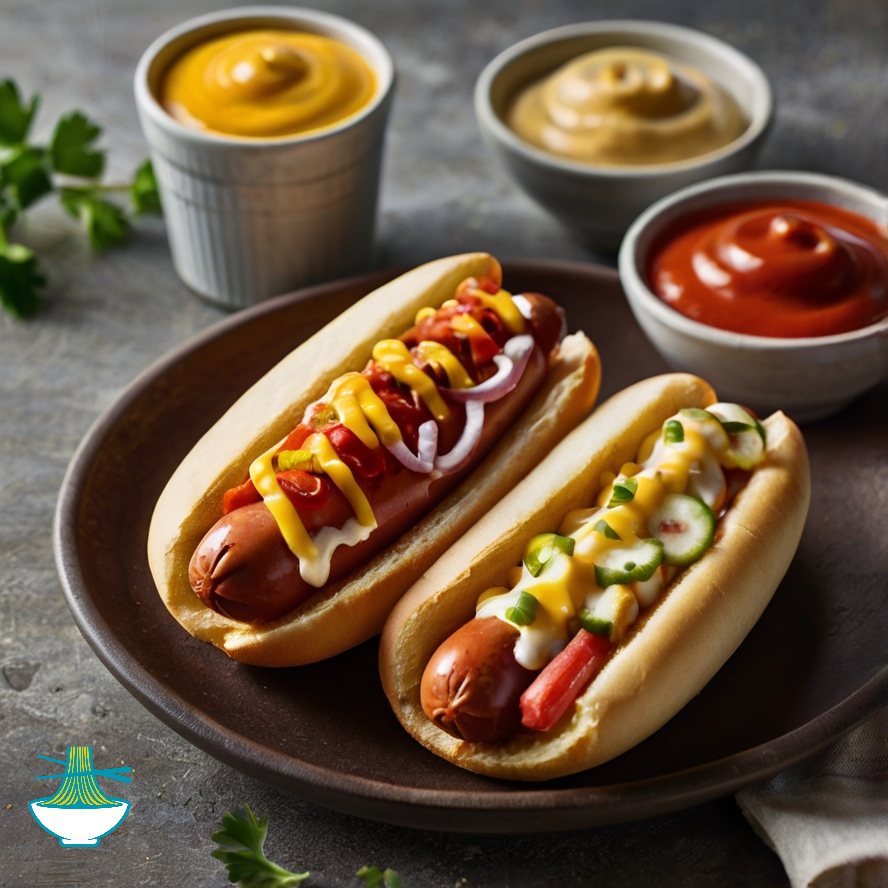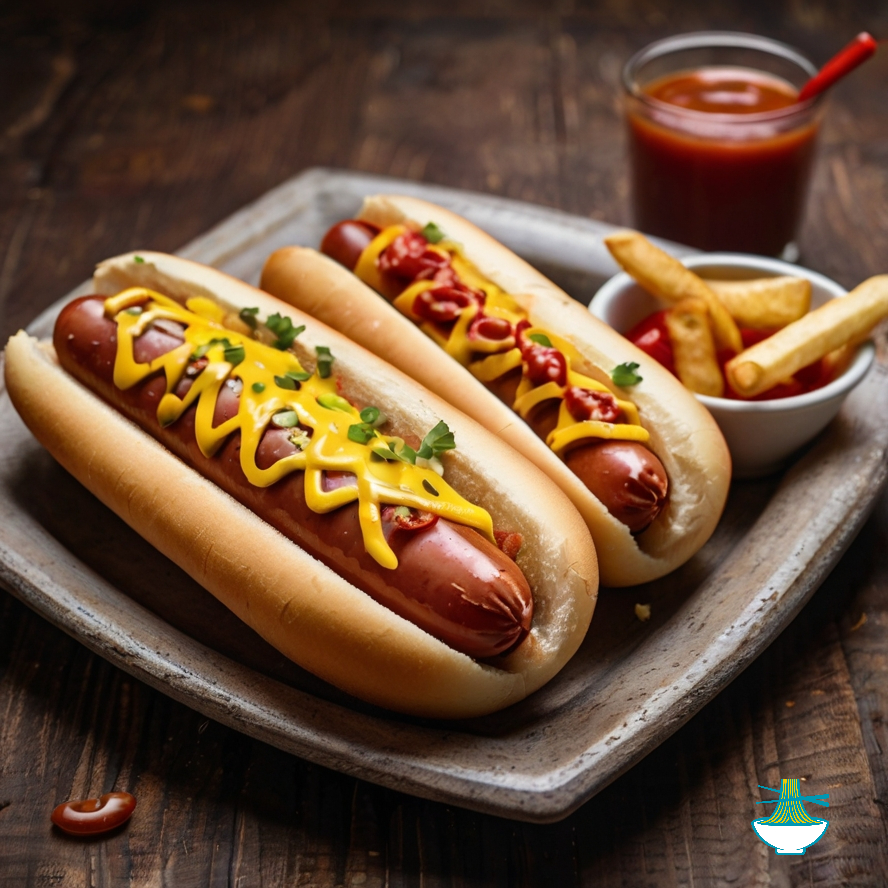Savor the tempting blend of sliced sausages over crisp French fries, paired with various flavorful sauces. Salchipapas, a cherished street food, combines diverse tastes and textures for a truly enjoyable culinary experience. uncover the secrets to preparing this irresistible dish in your own kitchen!
Ingredients:
- 4 large potatoes, peeled and cut into fries
- 4 hot dogs, sliced diagonally
- Vegetable oil for frying
- Salt to taste
- Various sauces for serving (such as ketchup, mustard, mayo, or salsa golf)

Instructions:
Prepare the Potatoes:
1-Rinse the peeled potatoes under cold water to remove excess starch.
2-Cut the potatoes into thin fries, about 1/4 inch thick.
3-Soak the fries in cold water for about 30 minutes to remove more starch. This will help them become crispier when fried.
4-Drain and pat the fries dry with paper towels.
Fry the Potatoes:
1-Heat vegetable oil in a deep fryer or a large pot to 350°F (175°C).
2-Carefully add the potato fries in batches to the hot oil, ensuring they are not overcrowded.
3-Fry the potatoes for about 5-7 minutes or until they are golden brown and crispy.
4-Remove the fries from the oil using a slotted spoon and drain them on paper towels. Sprinkle with salt while they are still hot.
Prepare the Hot Dogs:
1-While the fries are frying, slice the hot dogs diagonally into bite-sized pieces.
2-Heat a skillet over medium-high heat and add a drizzle of oil.
3-Add the sliced hot dogs to the skillet and cook for 3-5 minutes, stirring occasionally, until they are browned and heated through.
Assemble the Salchipapas:
1-Once the fries and hot dogs are ready, arrange them on a serving platter or individual plates.
2-Serve the hot dogs over the crispy fries.
3-Offer a variety of sauces on the side, such as ketchup, mustard, mayo, or salsa golf, for dipping.
Serve and Enjoy:
1-Serve the Salchipapas immediately while they are hot and crispy.
2-Enjoy the delicious combination of sliced hot dogs, crispy fries, and flavorful sauces!
Salchipapas make for a delightful snack or a casual meal that's perfect for sharing with friends and family. Enjoy!
Nutritional Values :
Potatoes (4 large potatoes, peeled and cut into fries):
- Calories: 800 kcal
- Carbohydrates: 184 g
- Protein: 20 g
- Fat: 0 g
- Fiber: 24 g
benefits:
- Rich in carbohydrates, potatoes provide a good source of energy for the body.
- High in fiber, aiding digestion and promoting gut health.
- Contains vitamin C, which supports immune function and skin health.
- Provides potassium, important for heart health and regulating blood pressure.
Hot Dogs (4 hot dogs):
- Calories: 320 kcal
- Carbohydrates: 8 g
- Protein: 16 g
- Fat: 24 g
- Fiber: 0 g
benefits:
- Provide a good source of protein, essential for building and repairing tissues in the body.
- Contain various vitamins and minerals such as vitamin B12, which is important for nerve function and red blood cell formation.
- Offer convenience and versatility in cooking, making them a quick and easy protein option.
Vegetable Oil (for frying):
- 1 tablespoon of vegetable oil contains approximately:
- Calories: 120 kcal
- Fat: 14 g
benefits:
- Contains heart-healthy unsaturated fats, such as monounsaturated and polyunsaturated fats.
- Provides essential fatty acids that the body needs but cannot produce on its own.
- Helps in the absorption of fat-soluble vitamins such as vitamins A, D, E, and K.
Salt (to taste):
- Negligible calories and macronutrients
benefits:
- Necessary for maintaining electrolyte balance in the body.
- Adds flavor to dishes, enhancing taste and enjoyment.
- Used in moderation, salt can help stimulate appetite and aid in the digestion process.
Total Nutritional Values for Entire Recipe (excluding sauces):
- Calories: Approximately 1,240 kcal
- Carbohydrates: Approximately 192 g
- Protein: Approximately 36 g
- Fat: Approximately 38 g
- Fiber: Approximately 24 g
These values are approximate and can vary based on factors such as the type of potatoes, hot dogs, and the amount of oil absorbed during frying. Additionally, the nutritional values do not include the sauces, as they can vary greatly depending on the type and amount used.


Comments